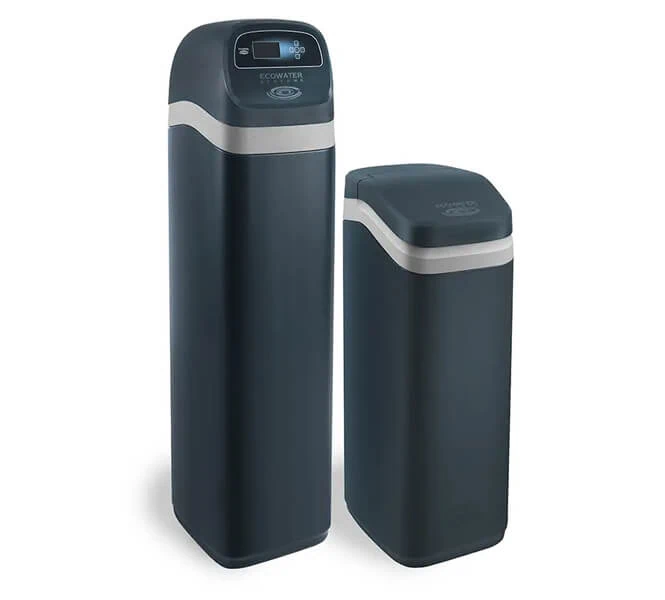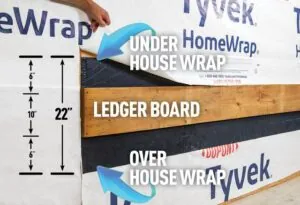by Keith Johnson
Whether you’re building or renovating your home, installing a new appliance, or just doing DIY appliance maintenance and repairs, one of most overlooked considerations is water quality. Most homeowners don’t realize how much water quality can impact the function and lifespan of home appliances, as well as the overall quality of life for those living in the home.
Here’s what water treatment experts want every homeowner to know—from the ROI of improved water quality to how to choose the right water treatment system for your home:
- Water contaminants are extremely common.
The water in your home touches everything, from pipes to appliances to clothing and dishes to your body. But the reality is that almost all tap water contains some level of contaminants, ranging from minerals which make up “hard” water to more dangerous contaminants that can pose health risks: lead, arsenic, and the more recently spotlighted presence of PFAS.
Water quality varies immensely across the country and can even be very different from city to city (or even from one side of the street to the other). For example, lead pipes on the private side of the water service line coming into your home can contaminate your home drinking water with potentially dangerous lead levels.
- Look for signs of water quality issues—and have your water tested.
There are many common water quality issues that are noticeable simply by using your senses. Start by looking for these common signs:
- When you turn on your faucet, does the water smell like rotten eggs?
- Do your freshly laundered towels feel rough and abrasive rather than soft and fluffy?
- Does your coffee or tea lack the fresh flavor you get from your coffee shop?
- Does a glass of ice water have the faint smell and taste of chlorine?
There are also many water problems that cannot be detected or identified as easily. That’s why you should also have your water tested at regular intervals. In fact, many cities offer water testing for free to homeowners.
- Poor water quality has measurable costs.
When it comes to hidden contaminants like lead, nitrates, arsenic, or microbiological pathogens, you don’t need to make a “business case” for water treatment—it’s a matter of protecting your family’s health and your wallet.
Most notably, a whopping 85% of Americans live in an area with hard water. The minerals in hard water cause “scale,” an accumulation of mineral deposits that can clog up pipes and components of costly appliances like water heaters and dishwashers.
In the short term, scale leads to higher energy bills by requiring more energy and water to wash dishes or clothes, for example. Over the long term, scale can seriously reduce the lifespan of these costly appliances, leading to more breakdowns and repairs. Scale can even cut the lifespan of your dishwasher in half.
What is the economic impact of a water treatment system across a full year? Here’s a look at some typical savings:
- $450 in cleaning & personal care (reduced usage of soap, lotions, detergents, etc.)
- $60 in energy costs
- $200 in washable items (reduced wear on clothes, towels, linens, etc.)
- $90 in repair & replacement costs (plumbing & appliances)
- TOTAL ANNUAL SAVINGS: $800
- Water softening might not be enough.
Basic water softening is a great first step in helping with water “hardness.” But chemicals like chlorine can still wreak havoc, giving your drinking water an unpleasant smell and taste, and even damaging wear on appliances around your home.
This is where whole-home water treatment systems can tackle the full job of improving home water quality. These whole-home systems combine advanced water softening and water filtration in a single system—bringing high-quality water to every appliance and faucet in your home.
- Not all water treatment systems are created equally.
Water treatment can be a remarkably cost-effective way to significantly improve the essential functions of your home appliances, extend their lifespans and protect your family’s. But water treatment systems are too often misunderstood as being one in the same.
As you shop for water treatment systems, here are some keys points to consider:
- Look for integrated water softening and filtration: Leading water treatment systems combine water softening and water filtration into a whole-home water treatment solution.
- Ask about high-efficiency water softening: Best-in-class water softening technology can deliver efficiency savings of up to 40% annually in reduced water and salt usage.
- Get the peace of mind of “smart” Wi-Fi connectivity and control: Some of the most innovative home water treatment systems now feature “smart” Wi-Fi connectivity that enables real-time visibility.
- Choose a vendor with a reputation for quality: Especially for DIYers, it’s worth doing your homework to find a vendor that come with NSF certification. After all, it will be you bearing the cost and burden of fixing or replacing unreliable equipment.
- For the DIYer, focus on ease of maintenance.
Whether you are doing a full DIY install of a water treatment system in your home or just planning to handle ongoing maintenance on your own, it’s important to be realistic. You want to ensure the maintenance requirements are something you can handle.
As you evaluate options, look for water treatment systems designed to make DIY maintenance easy and manageable, such as easy-to-change filters, leak detection and automatic shutoff and filter change monitoring.
About the author : Keith Johnson is VP of Product Management at EcoWater Systems




